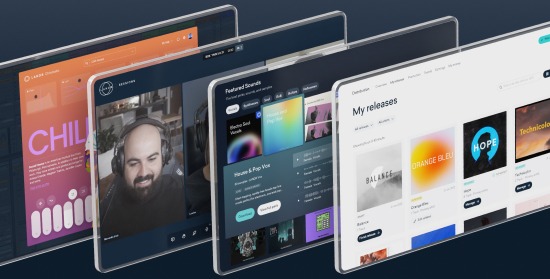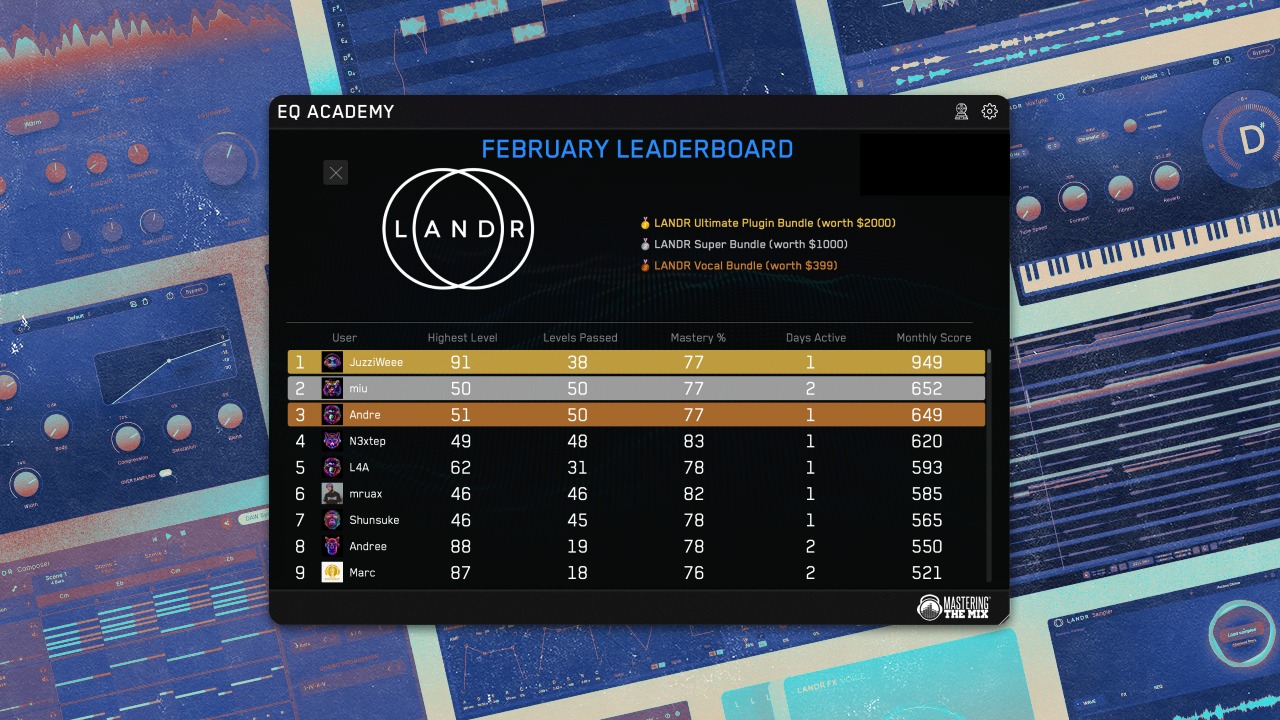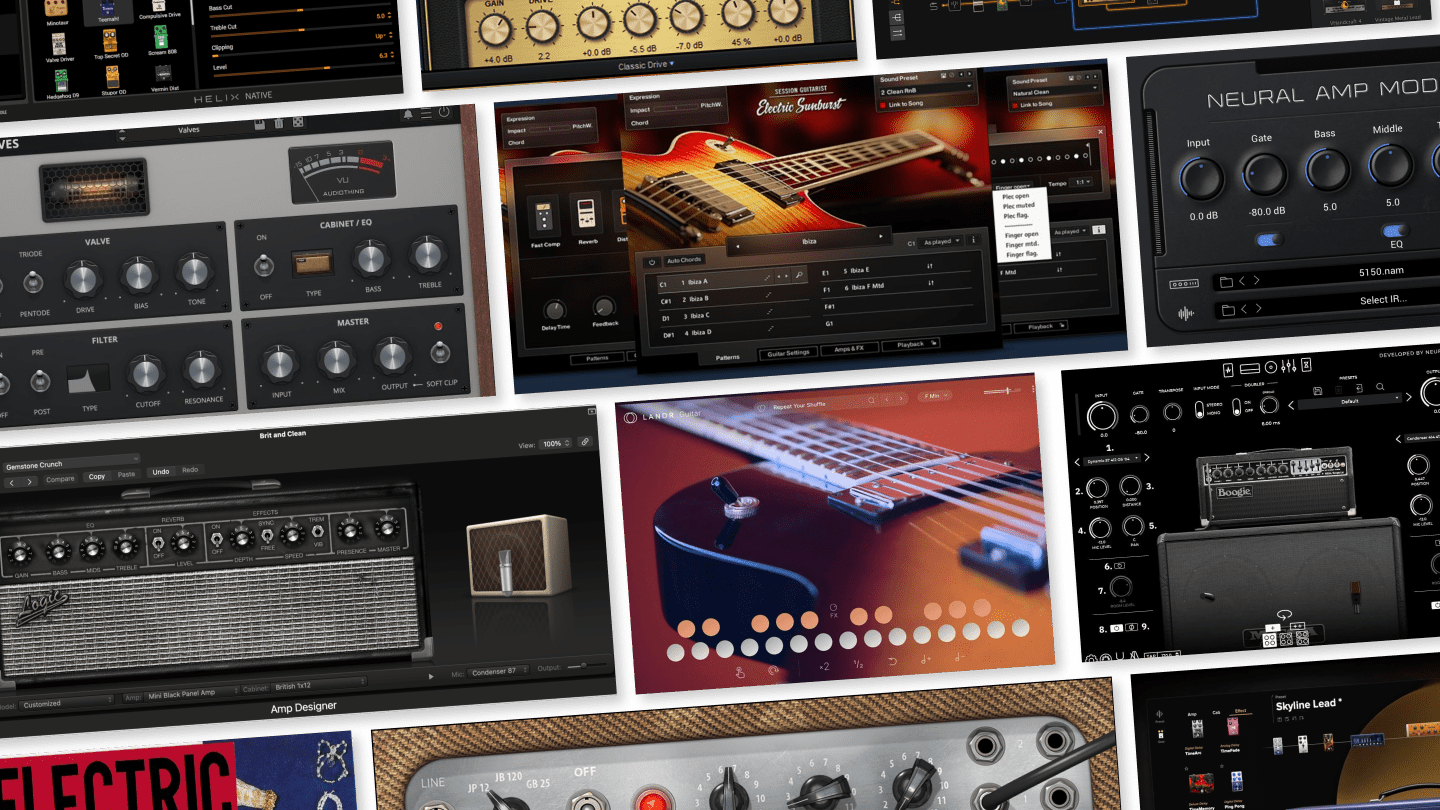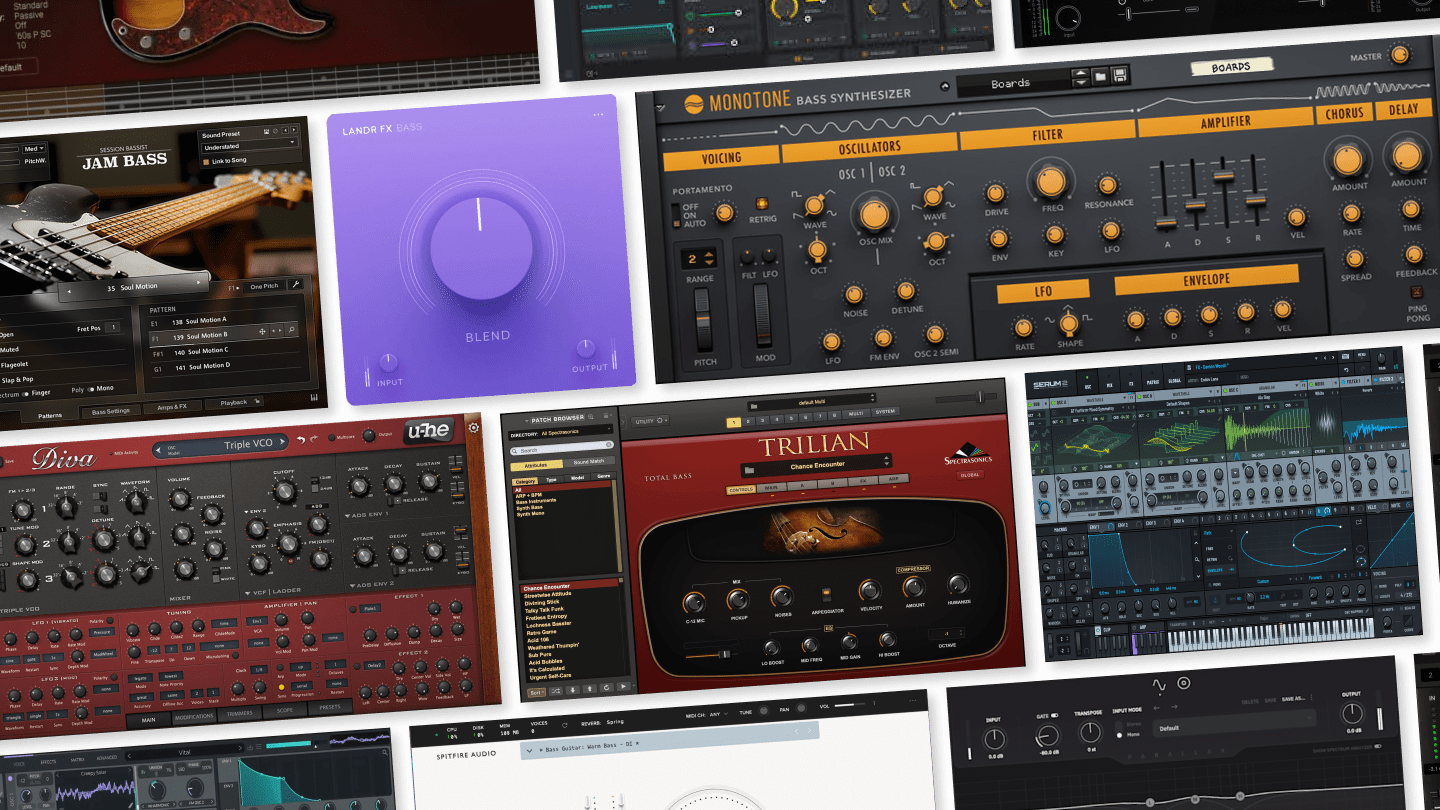
MOD Devices MOD Duo Brings Plugins and Stompboxes Together
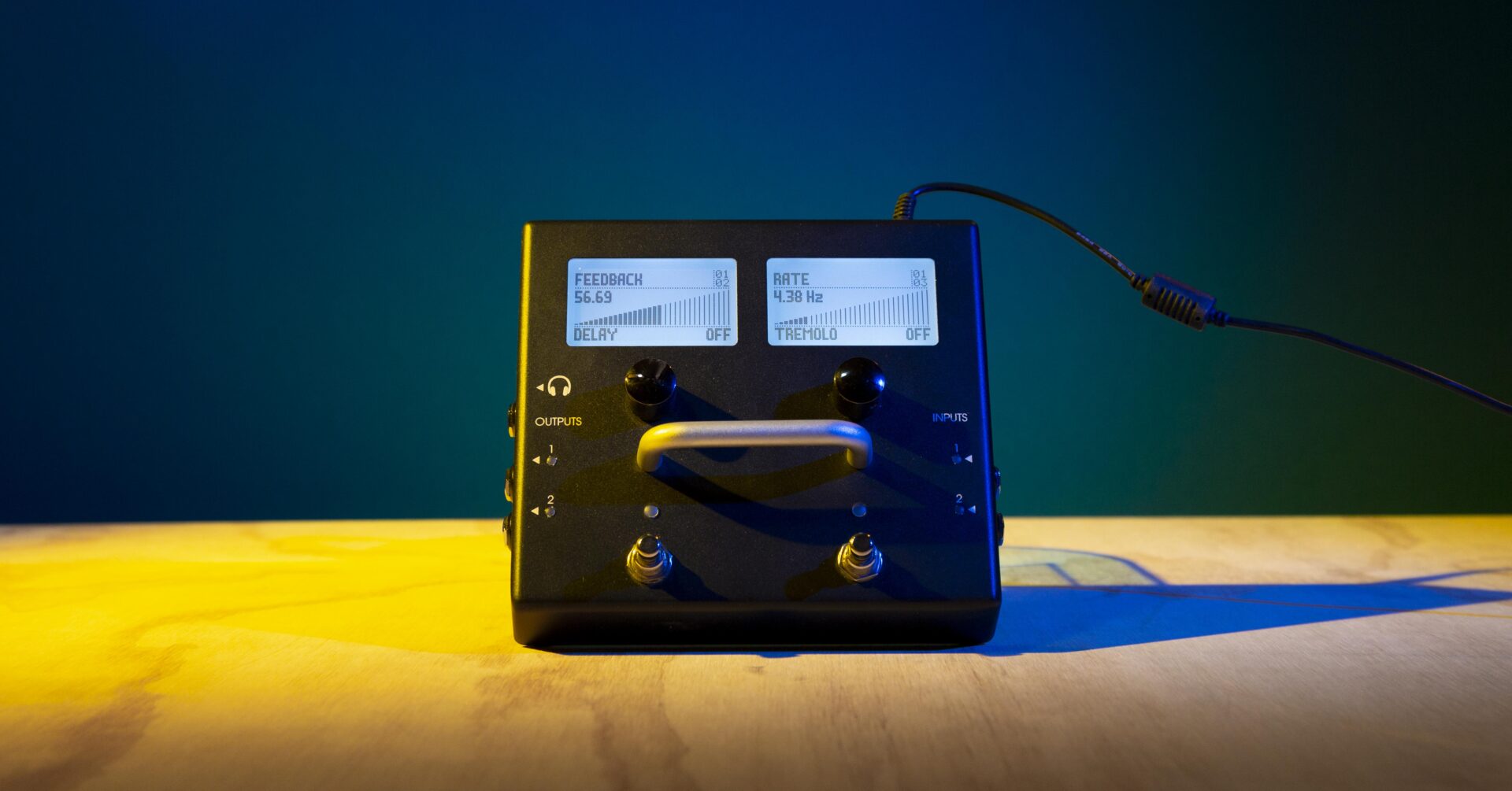
Musicians are often forced to choose between the flexibility of digital and the reliability of hardware for live performance.
Getting the best of both worlds is an ongoing project for gear manufacturers and musicians alike.
The MOD Devices MOD Duo is an impressive device that provides one solution for bridging the gap between digital tools and stompbox hardware.
The MOD Duo is perfect for open source tinkerers who want a flexible platform with powerful digital processing in a traditional guitar pedal form factor.
Fit and Finish
The MOD Duo is a stompbox style processor with two LCD screens, dual 1/4″ I/O, a headphone jack and two stomp switches.
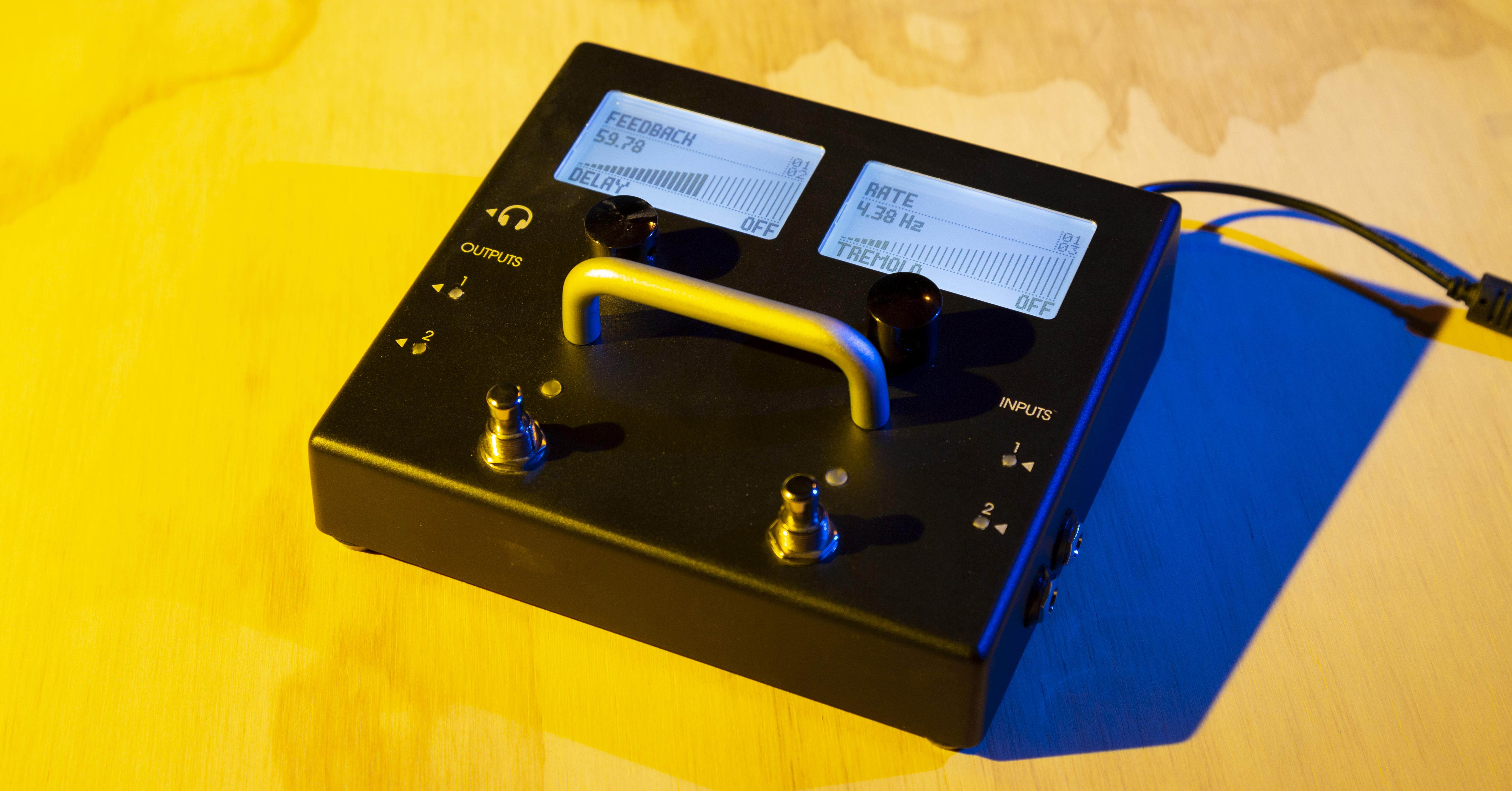
The rear panel features connectivity for your computer, USB or MIDI DIN and a port for MOD Devices own “Control Connection” standard.
The MOD Duo’s enclosure feels weighty and robust in hand. Its endless rotary encoders click satisfyingly when depressed and the I/O jacks seem snug and durable.
The whole setup feels as roadworthy as a conventional guitar pedal and would fit comfortably on any pedalboard.
The whole setup feels as roadworthy as a conventional guitar pedal and would fit comfortably on any pedalboard.
The 12V PC style power brick might be slightly awkward for those using 9V isolated pedalboard power supplies.
The dual monochrome displays are bright and sharp and the menu system is easy to navigate.
Editing parameters from the front panel feels responsive and the graphical elements are straightforward and informative.
In use
There’s often a bit of startup anxiety when first connecting new digital gear.
Many of us remember wrestling with complicated drivers, bloated apps or third party DRM just to get started with digital music tools.
That’s why it was such a relief to plug in the MOD Duo and simply navigate to its local address in my web browser to get started creating patches—no download or installation.
I’ve rarely had such a smooth plug-and-play experience.
I’ve rarely had such a smooth plug-and-play experience.
Of the two USB ports, port B is the traditional computer connection that allows you to program pedalboards on the graphical, browser based editor.
The other port is a regular Type A Host connector that allows you connect other devices as an input to the MOD Duo.
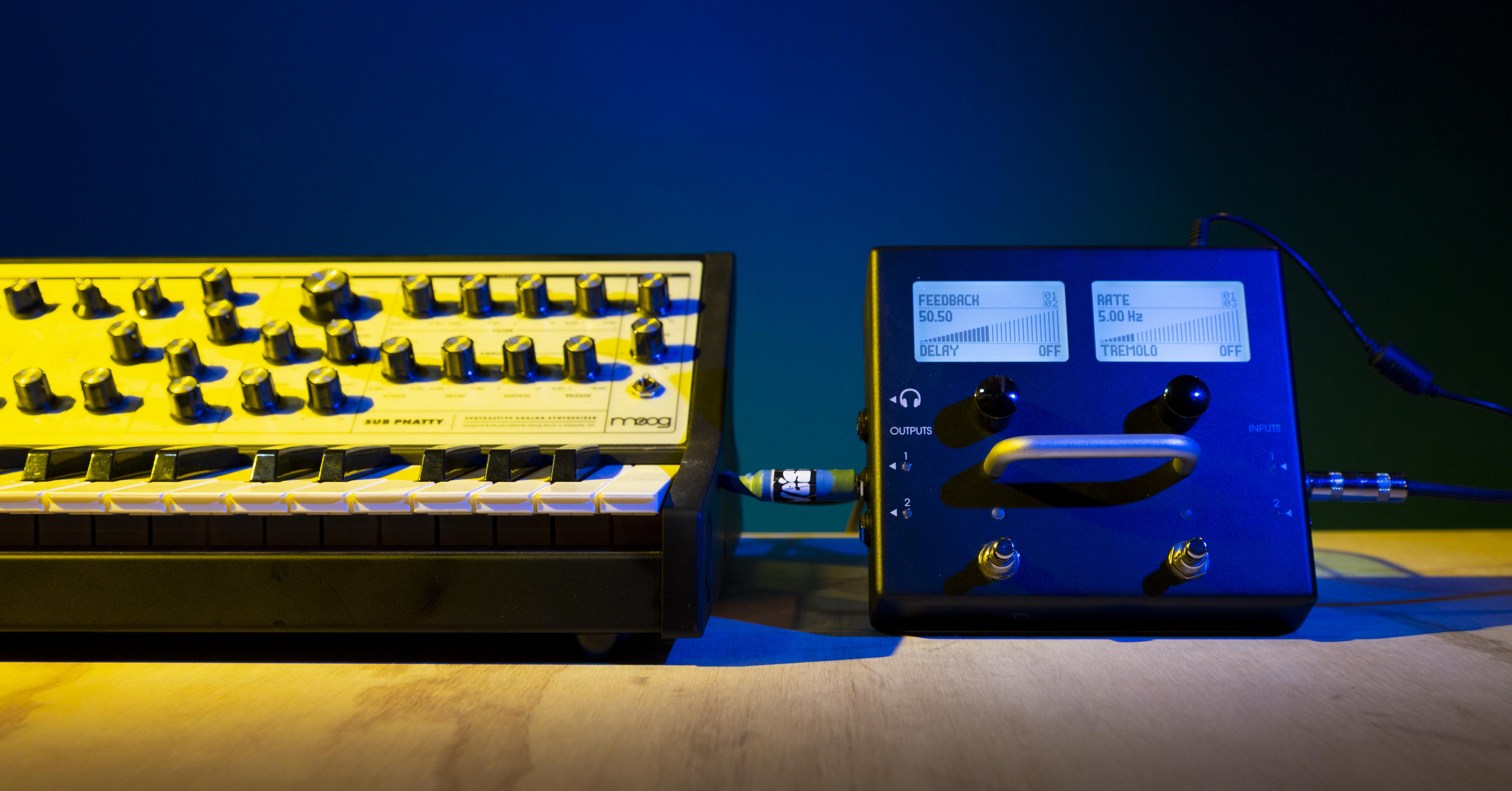
I plugged in the only MIDI controller I had on hand via this USB port and had it powered up and recognized immediately.
And according to the MOD Duo’s FAQ you can use a USB hub to expand the number of devices.
Connecting a USB MIDI foot controller and keyboard could turn the MOD Duo into the centrepiece of a multi-dimensional live performance rig.
The graphical modular pedalboard programming environment is intuitive and effective. Guitarists may be a little surprised to see signal flowing from left to right on stompboxes.
Navigating the menus on the pedal itself was similarly easy, although there’s not quite as much programming accessible as I expected from the front panel.
Plugins
Linux users will recognize the LV2 format as the one of the main audio plugin standards on Linux-based OS.
MOD Devices seems to have chosen LV2 in order to stay open source. And while there are some excellent developers creating LV2 plugins, the VST or AU standards are certainly more widely adopted.
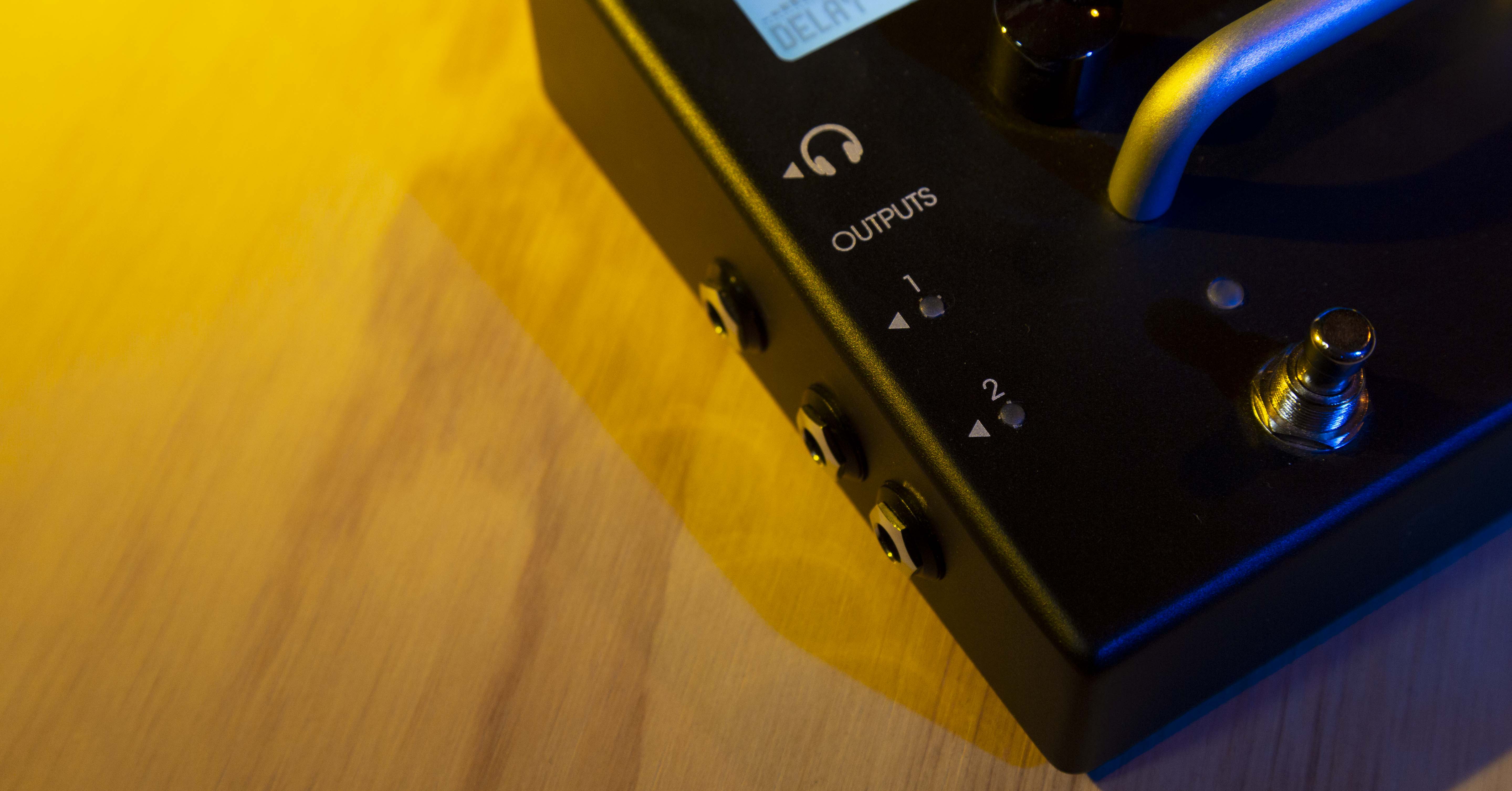
That isn’t to say that there aren’t enough plugins on MOD Duo to get you started creating right away.
But if more plugin brands jump onboard or LV2 plugins become more common, the MOD Devices plugin marketplace could really take off.
For now it’s limited to plugins developed by MOD Devices and a handful of third party designers working in the LV2 standard.
The few I recognized were the Smartelectronix mda series from the early days of freeware and TAL’s excellent Noisemaker synth.
The generators are basic synth modules you can play with an attached MIDI or USB device.
According to the MOD Duo’s FAQ it is possible to load any LV2 plugin on the MOD Duo. You can even load plugins from outside the MOD Devices store.
However, a quick look into how to install non-library plugins seemed pretty involved as a non-Linux user.
Max/MSP users will be happy to learn that patches created inside the popular modular environment can be converted into MOD Duo compatible LV2 plugins fairly easily.
That’s big news for anyone who wants to perform with Max patches without bringing a computer along.
Sound
The MOD Duos plugin library contains a compelling diversity of effects, amp sims, utilities and “generators.”
The generators are basic synth modules you can play with an attached MIDI or USB device.
The guitar amp models can provide anything from articulate Fender-style cleans to aggressive modern high gain.
Amp sims aren’t everyone’s cup of tea, but I found the MOD Duo’s offerings effective.
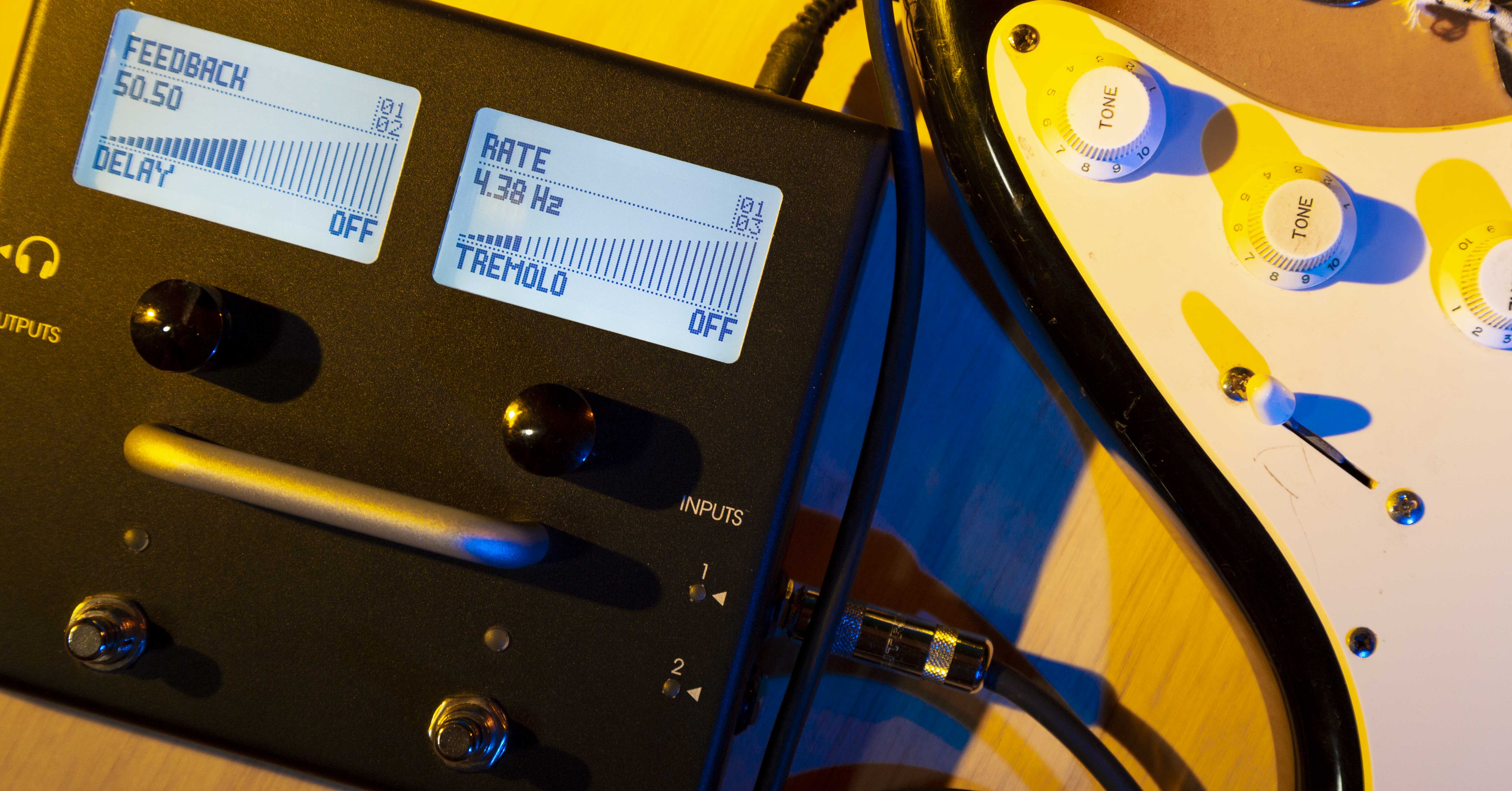
The main benefit of the Duo is how you can creatively route the signals coming to and from your effects.
The quality of the effects varies a little from one developer to another. But overall the plugins I tried produced interesting and usable sounds.
But the main benefit of the Duo is how you can creatively route the signals coming to and from your effects.
I had fun playing with some parallel and wet/dry setups and creating some crazy runaway feedback loops.
The sound of the generators was surprisingly good. And sequencing them alongside a full guitar chain in the same pedalboard is extremely useful.
The TAL Noisemaker synth sounds great, but does put a significant load on the Duo’s CPU. The mda epiano and Black Pearl drum kits are also great sound tools.
I tried Sooperlooper—the main looping plugin—and found it reasonably easy to use if somewhat basic. Unfortunately there’s no way yet to sync loops to the master clock or sequencer modules.
Conclusion
Digital guitar rig tools are having a moment right now in the gear industry. There are plenty of highly regarded digital solutions out there.
Devices like the the Line6 Helix or the boutique Axe-FX or Kemper units are hard to beat for tone.
But none of these are open source or flexible enough to include synth modules or the kind of unlimited modular environment that the MOD Duo allows.
If supreme flexibility and open-ended programming is your goal (especially if you’re an open source, Max/MSP or Linux audio aficionado), the MOD Duo could be the platform you’ve been waiting for.
Gear guides, tips, tutorials, inspiration and more—delivered weekly.
Keep up with the LANDR Blog.
Gear guides, tips, tutorials, inspiration and more—delivered weekly.
Keep up with the LANDR Blog.
